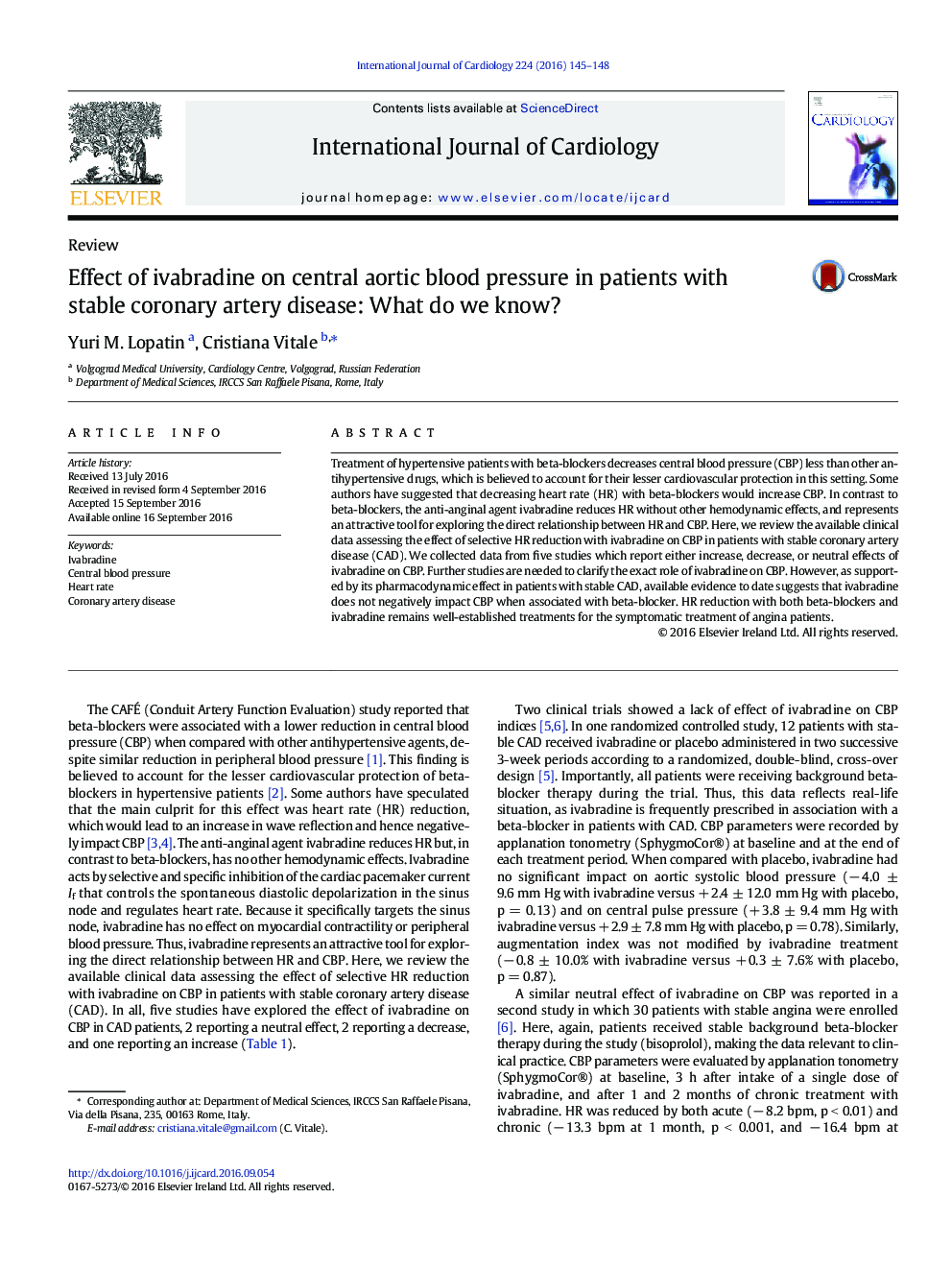| Article ID | Journal | Published Year | Pages | File Type |
|---|---|---|---|---|
| 5962311 | International Journal of Cardiology | 2016 | 4 Pages |
â¢Central blood pressure has been linked with cardiovascular protection.â¢Ivabradine reduces heart rate without other hemodynamic effects.â¢Ivabradine prolongs diastolic phase without a significant impact on ejection time.â¢Ivabradine is unlikely to increase CBP by increasing the reflected wave.
Treatment of hypertensive patients with beta-blockers decreases central blood pressure (CBP) less than other antihypertensive drugs, which is believed to account for their lesser cardiovascular protection in this setting. Some authors have suggested that decreasing heart rate (HR) with beta-blockers would increase CBP. In contrast to beta-blockers, the anti-anginal agent ivabradine reduces HR without other hemodynamic effects, and represents an attractive tool for exploring the direct relationship between HR and CBP. Here, we review the available clinical data assessing the effect of selective HR reduction with ivabradine on CBP in patients with stable coronary artery disease (CAD). We collected data from five studies which report either increase, decrease, or neutral effects of ivabradine on CBP. Further studies are needed to clarify the exact role of ivabradine on CBP. However, as supported by its pharmacodynamic effect in patients with stable CAD, available evidence to date suggests that ivabradine does not negatively impact CBP when associated with beta-blocker. HR reduction with both beta-blockers and ivabradine remains well-established treatments for the symptomatic treatment of angina patients.
